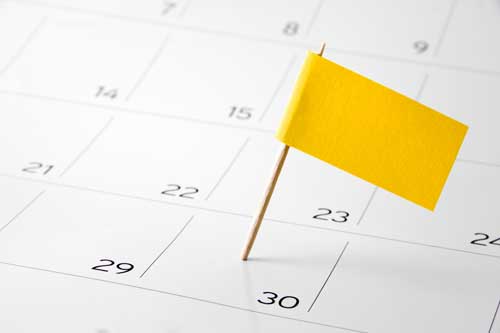Question:
Can a protocol get IRB approval during the 30-day IND waiting period?
Response:
When opening an Investigational New Drug (IND) application with FDA, federal regulations give FDA a 30-day window in which to raise any concerns about the application or proposed clinical protocol that would prevent the study from starting, by placing it under clinical hold. Usually, the “safe to proceed” news is not communicated in a formal letter, but as a “no news is good news” lack of clinical hold notification during that 30-day window, as noted in CFR21 Part 312.40.
An IND goes into effect:
(1) Thirty days after FDA receives the IND, unless FDA notifies the sponsor that the investigations described in the IND are subject to a clinical hold under § 312.42; or
(2) On earlier notification by FDA that the clinical investigations in the IND may begin. FDA will notify the sponsor in writing of the date it receives the IND.
CFR21 Part 312.40
Sponsors who want to be ready to move forward with their study often ask if they can submit for IRB review, and receive IRB approval for the protocol, before the 30-day waiting period has elapsed. According to the regulations, this is allowed, and WCG IRB will grant full protocol approval during this period. Waiting for the 30-day window to elapse before moving forward with the study is still the responsibility of the sponsor, even if full IRB approval has been granted. Sometimes WCG IRB is aware, based on the documents provided during IRB submission (usually the letter from FDA acknowledging the IND submission, which may be submitted to document the IND number), that the IND is still within the 30-day window. In these cases the Certificate of Approval might include a statement to the sponsor/investigator that they should wait until the 30 days are complete but would be a courtesy reminder only, and not a condition of approval.
For future protocols that are submitted as amendments to the existing IND, the same process is true; IRB approval of the protocol can be granted while the IND protocol amendment is still under FDA review. Since there is no dated latter of FDA receipt of the submission in these cases that would be submitted to the IRB, the IRB would not know when the submission occurred or whether the IRB was reviewing within the 30-day window, so Certificates of Approvals for these protocols almost never include the reminder to wait through the FDA review period, although to do so would still be the responsibility of the sponsor. The regulations are clear that the IRB approval and FDA review both need to happen but can be in any order (CFR 21 Part 312.30).
Whenever a sponsor intends to conduct a study that is not covered by a protocol already contained in the IND, the sponsor shall submit to FDA a protocol amendment containing the protocol for the study. Such study may begin provided two conditions are met: (1) The sponsor has submitted the protocol to FDA for its review; and (2) the protocol has been approved by the Institutional Review Board (IRB) with responsibility for review and approval of the study in accordance with the requirements of part 56. The sponsor may comply with these two conditions in either order.
CFR 21 Part 312.30
Although the question is less-frequently asked about Investigational Device Exemptions when the product being developed is a medical device rather than a drug/biologic, the same timing can occur in those cases as well, with IRB approval occurring while the IDE review is ongoing.
Don't trust your study to just anyone.
WCG's IRB experts are standing by to handle your study with the utmost urgency and care. Contact us today to find out the WCG difference!
